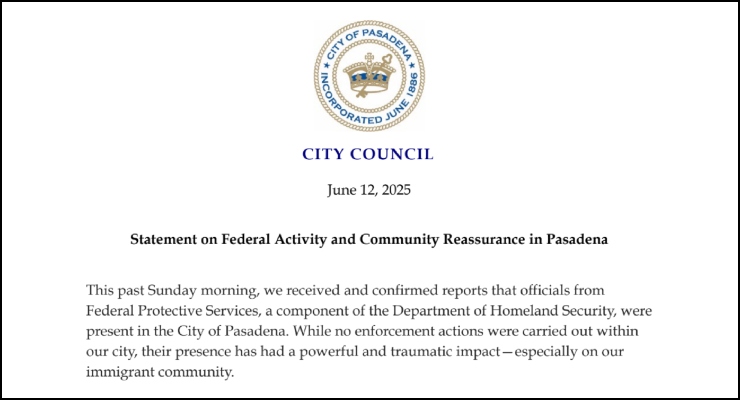
The effects of modern industry on the Earth’s climate are evident and increasing, but scientists at Caltech say they also see reason for optimism this Earth Day due to growing attention to the issue from the public, political leaders and the corporate world.
Over the past century, Earth’s climate has warmed by about one degree centigrade, Caltech Professor of Environmental Science and Engineering Tapio Schneider said.
“Most of that warming has occurred since the 1970s, and that was predicted by climate models already in the 1970s. So the early generation kind of correctly predicted the warming we have seen in the last 50 years or so,” he said. “Today’s climate models are still predicting warming, predicting intensification of rainstorms and so forth.”
Numerous models agree that warming will continue, but there are a wide range of estimates regarding how much, according to Schneider.
“For example, if you ask our models how much more warming we will get by 2050 even in a scenario in which emissions run down to zero relatively rapidly, some models predict you get another half a degree centigrade warming,” he said. “And some other models say it’s one-and-a-half degrees.”
“So it’s clear that earth will continue to warm. It has adverse effects on ecosystems,” Schneider added.
Looking specifically at Southern California, residents should expect both hotter and wetter weather in the coming decades, he said.
“It will mean that we’ll have a lot more really hot days in the L.A. area, a lot more days where temperatures exceed 95 or a hundred degrees than we’re currently having. It will mean that the most intense rain storms become more intense. Those are things that are very clear. It’s basic physics.”
Approaching the same topic from a different angle, Caltech Professor of Atmospheric Chemistry and Environmental Science and Engineering Paul Wennberg relayed similar conclusions.
“Temperatures have warmed about one degree Celsius since the mid-20th century and they’re increasing right now at quite a clip,” he said. “And so absent significant reductions in the amount of CO2 emissions, we’re looking at a consistent warming pattern over the next decades. And this will be felt most acutely, of course, not by you and me, but by our children and their children.”
The effects will vary widely in different regions, from dryness and drought to flooding and hurricane intensity, Wennberg explained.
“Near the shore, it’s going to be warmer and wetter,” he said. There’s all sorts of effects. This is not a small experiment we’re doing right now.”
But both scientists also said they saw positive signs.
“I think there’s plenty of reasons to be hopeful that we will be able to bend carbon emissions down. And the main reason to be hopeful is the rapid technological evolution, especially of solar power,” Schneider said.
“It’s not far from being at cost parity with burning fossil fuels. In fact, in some areas, it is already cheaper to build a new power plant that’s solar than burning coal or gas,” he said.
They may represent a substantial tipping point for the way the nation and the world obtains energy, according to Schneider. “That’s when you’ll see a large economic transition. That’s when you’ll see a large transition towards a more sustainable future. And I think that transition is near.”
Wennberg, too, said he perceived hope for improvement.
“There’s a lot of optimism that I have around the rapidly changing economics associated with much lower greenhouse gas emissions,” he said. “The rate at which we’re able to generate electricity carbon free has just plummeted over the last couple of decades. And it’s getting to the point now where it’s cheaper to generate electricity from wind power, from solar, cheaper than you can run an existing fossil fuel based power plant.”
“The pessimism, of course, comes from the fact that that infrastructure is very long lived. And so the power plants and automobile fleets and all these things have very long lifetimes. And so it’s going to take a while for the economics to work their magic.”
“I think Earth Day is an important event and it does very hopefully do some reflection about where we are and where we want to be,” Wennberg said.
Current and future generations of innovators, like those at Caltech, will continue seeking out new solutions, Scheider said.
“As I tell my students at Caltech, engineers and scientists… if you really want to make a profound difference, you want to invent the next battery, invent the next high voltage materials for efficient transmission of electricity, and invent a new grid,” he said. “We need all hands on board, and especially people who are technically capable and interested, to apply their talents towards solving this global problem.”
More information about sustainability can be found online on Caltech’s Science Exchange at https://scienceexchange.caltech.edu/topics/sustainability.
Related:
Pasadena Celebrates Earth Day 2021














 1 comment
1 comment



